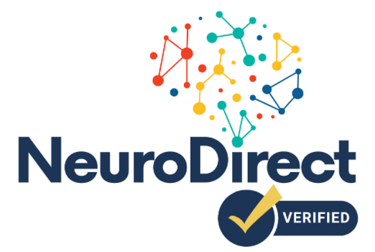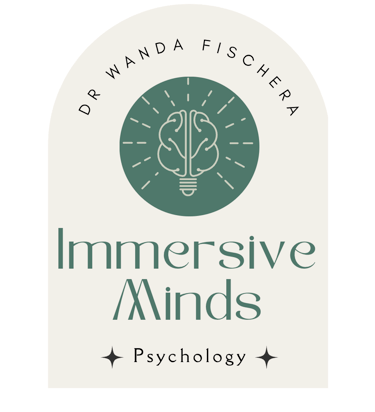The First Meta-analysis on Maladaptive Daydreaming
Maladaptive Daydreaming (MD) is often dismissed as simply an overactive imagination, but a recent meta-analysis reveals that it is deeply intertwined with various mental health conditions. These findings provide critical insights into how MD interacts with psychological challenges, reinforcing the need for greater awareness, support, and potential treatment options.
MALADAPTIVE DAYDREAMING
2/28/20254 min read


Maladaptive Daydreaming: The Hidden Connections to Mental Health
Maladaptive Daydreaming (MD) is often dismissed as simply an overactive imagination, but a recent meta-analysis reveals that it is deeply intertwined with various mental health conditions. These findings provide critical insights into how MD interacts with psychological challenges, reinforcing the need for greater awareness, support, and potential treatment options.
What is a Meta-Analysis and Why Does It Matter?
A meta-analysis is a research method that combines data from multiple studies to identify patterns and draw stronger conclusions than any single study could provide. By analyzing a large body of research, meta-analyses help confirm associations between variables with greater reliability and statistical power. In this case, the meta-analysis has confirmed that MD is closely linked to a variety of mental health conditions and it is a condition in its own right. This strengthens the argument for MD to be taken seriously within the psychological and clinical communities.
As you are on my website, I assume that the fact that MD is linked to mental health difficulties and it is a standalone mental health condition, is not a surprise to you. But we need these studies like this to bolster our claims and to reach clinical recognition.
Read below on what the study found, what it means and why it matters...
What the Research Says
The meta-analysis found that MD is strongly associated with a wide range of psychological difficulties, including:
Depression & Anxiety – Individuals with MD often struggle with feelings of sadness, worry, and excessive stress. Many use immersive daydreaming as a coping mechanism to escape emotional pain, but this can lead to avoidance of real-life responsibilities and deepen feelings of hopelessness.
Obsessive-Compulsive Disorder (OCD) – MD shares similarities with compulsive behaviors. People with MD often feel an uncontrollable urge to retreat into their fantasy worlds, despite negative consequences in their daily lives. This is akin to compulsion that is characterised in OCD. However, being a person with MD does not mean that you also have OCD.
Attention-Deficit/Hyperactivity Disorder (ADHD) – Individuals with ADHD may also develop MD alongside attentional problems such as difficulty focusing on real-world tasks. Their vivid imagination can be highly absorbing, making it even harder to maintain attention in academic, work, or social settings.
Dissociation & Trauma – MD is linked to dissociation, a mental state where people feel detached from reality. Recent research studies now often describe MD as a form of dissociation. MD can serve as a psychological escape from distressing memories or emotions, reinforcing a cycle of avoidance and emotional numbness and fosters reliance on daydreaming instead of more adaptive coping strategies. Daydreaming is maladaptive because of the reliance on emotional avoidance and escapism, which in the long-run is unhelpful.
Autism Spectrum Disorder (ASD) – The study found a connection between MD and ASD, likely because individuals on the spectrum often engage in deep, structured imaginative play or fantasy worlds as a form of comfort or self-regulation.
Psychotic Symptoms – While MD is not at all the same as psychosis, some similarities exist, particularly in the blurred lines between reality and fantasy.
Personality Disorders & Negative Self-Perception – MD is associated with dysfunctional personality traits, shame, low self-efficacy, and self-esteem. This suggests that for many, fantasy worlds may offer a refuge from feelings of inadequacy or failure.
Loneliness & Social Struggles – People with MD often report difficulties in forming real-world relationships. They may feel more emotionally invested in their imagined worlds than in their actual social connections, leading to increased isolation.
Problematic Internet Use & Celebrity Worship – The study also found links between MD and excessive engagement in online content, including parasocial relationships with celebrities. This suggests that individuals with MD may be drawn to idealized figures or digital escapes that feed their fantasy worlds.
Why These Connections Matter
MD is not yet a formally recognized disorder, but its strong associations with various mental health conditions suggest that it functions similarly to disorders listed in the DSM (Diagnostic and Statistical Manual of Mental Disorders). This means MD should not be dismissed as mere daydreaming but rather seen as a significant psychological experience that can impact well-being.
These findings align with previous research showing that MD is not just a harmless form of daydreaming but is often linked to significant mental health challenges.
MD as a Standalone Condition
Additionally, the study also now provides evidence that MD is not a manifestation of one of the above difficulties, but it is a standalone condition in its own right. This comprehensive meta-analysis provides strong evidence that MD deserves recognition as a distinct mental health condition, potentially warranting classification in major diagnostic manuals like the DSM and ICD. The patterns of comorbidity between MD and a wide range of established mental disorders mirror those seen in recognised psychiatric conditions, suggesting that similar neurobiological or psychological mechanisms may be at play.
Why This Matters?
This new research is a huge milestone for MD and for psychologists like myself who work to support individuals struggling with it. The recognition of MD’s links to other psychological conditions pushes it closer to being taken seriously in mental health discussions. It reinforces what those with MD have long known: this is more than just a habit—it’s a complex experience that deserves validation and support.
This also ties into my research on disclosure and how important it is for individuals with MD to talk about their experiences. The more we acknowledge and discuss MD, the closer we get to formal recognition, which means better understanding, interventions, and support. The more people recognize it, the less likely they are to dismiss it.
Understanding these links can help:
Reduce stigma and self-blame among those struggling with MD.
Encourage mental health professionals to recognise MD as a legitimate concern.
Lead to better therapeutic strategies, integrating treatment for coexisting difficulties like OCD, anxiety, or trauma.
Empower individuals to find healthier coping mechanisms and seek support when needed.
Seeking Therapy
Recognising the connection of MD to other psychological challenges is a crucial step toward understanding how to manage it effectively. However, as of now, when people with MD seek therapeutic support that is holistic - including mental health difficulties such as depression and anxiety AND maladaptive daydreaming - therapists are often unprepared to help in a way that considers the profound role MD plays in the difficulties they present with.
If you relate to these experiences, know that you're not alone. Seeking support from a therapist who understands MD and its links to mental health can make a world of difference.
Support
Dr Wanda Fischera is offering personalised online therapy for individuals and groups. Registered with HCPC.
Connect & receive updates on services and free resources
© 2024. All rights reserved. By Dr Wanda Fischera
I respect your privacy and I will not pass on your details to third parties.




